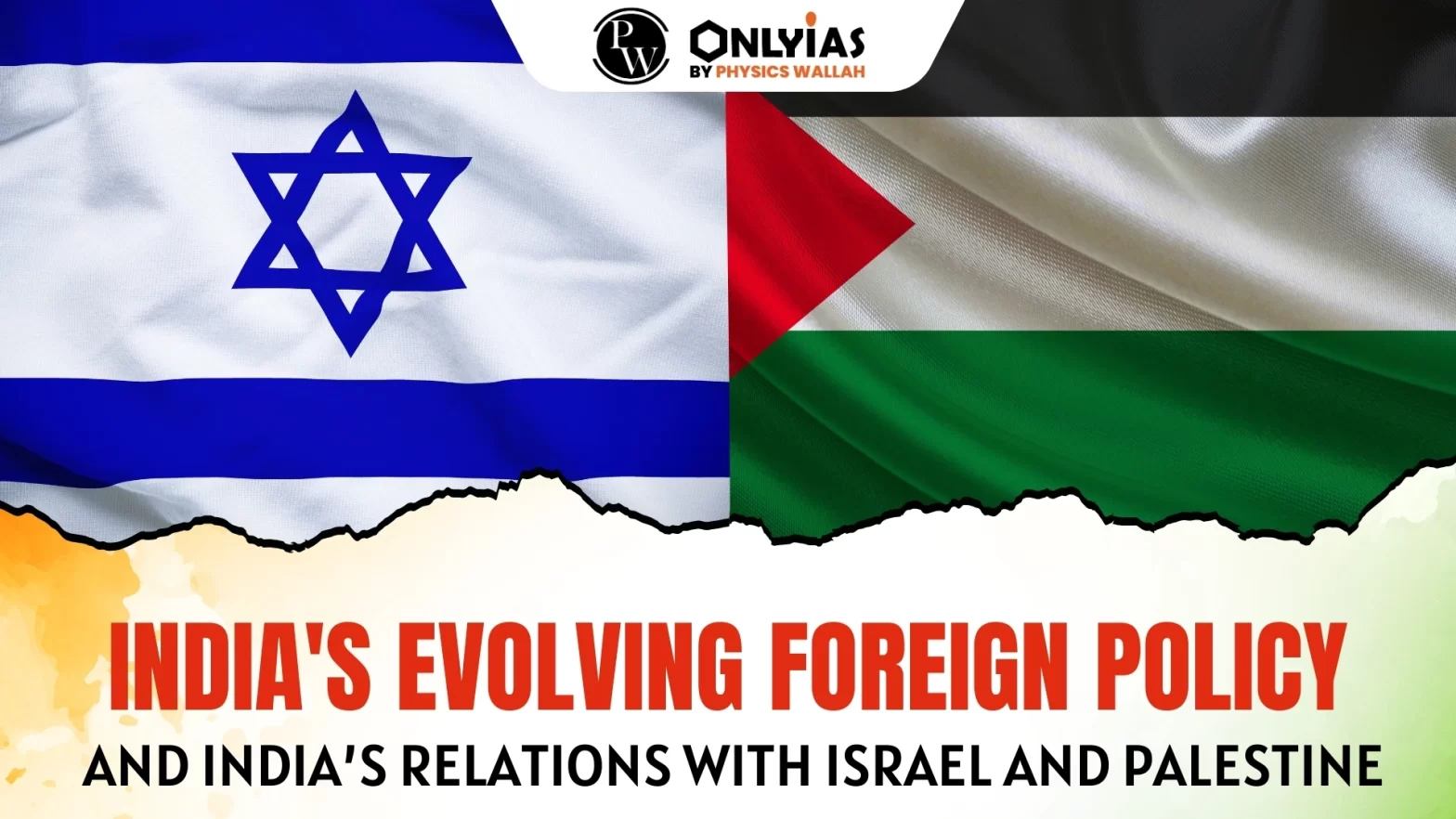Context: This article is based on an Editorial “Gaza, a new pointer to India’s changed world view” which was published in the Hindu. This article expresses India’s evolving foreign policy (with a special emphasis on Israel and Palestine) from the commitment to strategic autonomy and non-alignment to the changing geopolitical dynamics.
- India’s stand on the ongoing Israel-Hamas conflict reveals a fascinating portrait of the recent evolution of its foreign policy.
| Relevancy for Prelims: Abraham Accords, I2U2 and IMEC.
Relevancy for Mains: India’s evolving Foreign Policy and India’s relations with Israel and Palestine. |
A Historical Context On India’s Evolving Foreign Policy
- Against Decolonisation: India was a leading voice for decolonization.
- Misconception as Anti-Western Country: Indian moralism against imperialism and apartheid is often seen as anti-westernism.
- In most matters, India found itself similar to the USSR and against the West, even while the belief and adherence to democracy and diversity, were similar to liberals in the West.
India’s Relations With Israel
- Victims of Militancy: Both India and Israel share similar enemies in Islamist extremists and both enduring terrorist attacks from self-declared holy warriors.
- Enhancement of Cooperation: Security and intelligence cooperation began to grow between India and Israel. Gradually, political and diplomatic relations became deeper.
- Israel became a vital source of defense equipment and intelligence cooperation for India.
- Strengthening of Relations: The India-Israel relationship has appreciably strengthened in recent years. Mr. Modi became the first Indian Prime Minister to visit Israel and Mr. Netanyahu has twice traveled the other way.
- However, when Israel was indeed established, India duly extended recognition, but kept relations at a consular level for more than four decades, and in 1992 relations were upgraded to the Ambassadorial level.
- India’s Stand during Hamas Attack: In this attack, India stands in solidarity with Israel.
Learn more about India-Israel Bilateral Relations, here.
India’s Relations with Palestine
- Against the Partition of Palestine: India voted against partitioning the former British Mandate Territory of Palestine into two states, Israel and Palestine, in the United Nations in 1947.
- As the victim of a partition of its territory India did not favor it and argued for a single secular state for both Jews and Arabs in Palestine. It was, however, outvoted.
- Recognition of Palestine Liberation Organisation (PLO): India became the first non-Arab country to recognize the PLO in 1974, and to formally extend recognition to the Palestinian state in 1988.
- Supporter of the Two-State Solution: India is a votary of the two-state solution, calling for Palestinians and Israelis to live in security and dignity in their lands.
- India’s Stand during Israel-Hamas Conflict: India supported the “resumption of direct negotiations towards establishing a sovereign, independent and viable state of Palestine, living within secure and recognised borders, side by side at peace with Israel”.
- On Voting in the United Nations General Assembly (UNGA) for Humanitarian Ceasefire: Earlier India abstained from voting because the resolution had failed to condemn the terror attacks.
- But later, India joined the overwhelming majority to vote, for the first time, in favor of a resolution in the UNGA on an immediate humanitarian ceasefire in the conflict.
India’s Strategic Decisions on Grouping
- Association with Abraham Accords: India associated itself with the reorientation of the geopolitics of the Middle East following the Abraham Accords.
- I2U2: Joined the “I2U2” (India, Israel, the United Arab Emirates, and the United States).
- IMEC: Recently, India announced IMEC (India-Middle East-Europe-Economic Corridor).
- An India-Middle Eastern Economic Co-operation initiative whose trade route would go from India through Saudi Arabia to the Israeli port of Haifa.
![]() 15 Dec 2023
15 Dec 2023
